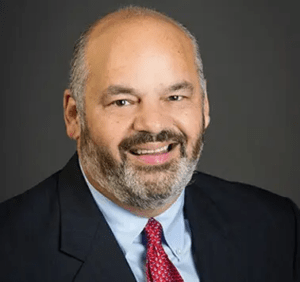
TOLEDO UNDERAGE DRINKING LAWYER
21 IS THE MINIMUM AGE WHEN A PERSON CAN LEGALLY CONSUME, PURCHASE, OR POSSESS ALCOHOL IN MOST STATES.
Ohio, like other states, sets 21 as the minimum age when a person can legally consume, purchase, or possess alcohol. Unfortunately, part of growing up usually involves testing boundaries, and many teens illegally use or possess alcohol. When they get picked up for it, they can face a criminal prosecution along with other unforeseen repercussions.
At our law firm, our attorneys understand how to fight underage drinking charges. We have helped many families and are familiar with the local prosecutors. Contact us as soon as possible for assistance.
WHAT IS UNDERAGE DRINKING?
Ohio prohibits those under 21 from consuming, possessing, or purchasing alcohol. Ohio law also makes it a crime for an underage person to be intoxicated in public.
Many people think underage drinking is no big deal, especially at our state’s large universities. Who hasn’t gone to a “keg party” as a college freshman or sophomore? Unfortunately, police have stepped up their efforts to curb underage drinking, so it is entirely possible that you or your child could get picked up. You can be prosecuted for something as small as having an alcoholic beverage in your hand.
For a free legal consultation with a underage lawyer serving Toledo, call (419) 930-3030
WHAT ARE THE PENALTIES FOR UNDERAGE DRINKING?
UNDERAGE DRINKING IS A 1ST DEGREE MISDEMEANOR IN TOLEDO, OHIO
Underage drinking is a first-degree misdemeanor in Toledo, Ohio. If convicted, you could face:
- Up to six months in jail
- A fine of up to $1,000
- Community service
- Alcohol counseling
- Probation
Many people arrested for underage drinking are also convicted of related offenses. For example, you might have been creating a disturbance, so you could be booked for disorderly conduct as well. Or you might have used a fake ID to obtain alcohol at a bar. A conviction for another crime will only increase the fine you have to pay and could potentially send you to jail for a longer amount of time.
Unfortunately, criminal convictions are public records, so any member of the public can find out about it. You will also need to disclose any conviction when applying for a job or to rent an apartment. Employers and landlords can use your criminal history to reject you, which might seem unfair but is currently the law. A criminal conviction can also make it harder to obtain a professional license.
Criminal Defense Lawyer Near Me (419) 930-3030
CAN YOU AVOID A CRIMINAL RECORD?
Yes, it is possible to fight a charge of underage drinking. Remember, an arrest is not the same as a conviction, and the state has the burden of proving beyond a reasonable doubt that you have committed the crime.
You can fight the charge and require the state to convict you of underage drinking beyond a reasonable doubt. Basically, this means getting acquitted of the charge or convincing the prosecutor to drop the charges. At Groth & Associates, we will carefully assess all the evidence that the state has in its possession, such as:
- Eyewitness testimony
- Your own statements
- Any surveillance video
- Proof of alcohol in your possession
- Breath tests that show your blood alcohol concentration (BAC)
- The arresting officer’s own impressions
Sometimes, the state has a very weak case, which means they run the risk of losing if they push charges. For example, you might have made incriminating statements that can nonetheless be excluded. Without a breath or blood test, the police might only have their own impressions that your speech was slurred as alleged proof of a violation.
You might also qualify for a diversion program for underage drinking. If you complete the program successfully, then your case is dismissed, and your criminal records are sealed. Diversion is a good option if this is your first offense.
WHAT SHOULD YOU DO IF STOPPED BY THE POLICE?
You might be throwing the best party in Toledo when the police come knocking on your door. What do you do? We receive this question from many parents.
First, you absolutely should not lie. If the police ask a question, then answer honestly. For example, they might want to know your name and see your ID. Hand it over. However, you do not need to admit to underage drinking. Instead, you can politely decline to answer if you have drunk anything.
Second, you also should not harass, attack, or try to intimidate the police. In addition to a charge for underage drinking, you could be facing other charges like resisting arrest, which will only make it harder to defend you. Remember, a lawyer will have a big enough challenge trying to defend against one criminal charge. Things only become more difficult the more charges you face.
Third, contact a lawyer as soon as possible. If you don’t know one, call an adult who can find one for you. You need immediate representation to protect your rights.
Complete a Free Case Evaluation form now
CAN CRIMINAL CONVICTIONS BE SEALED?
Yes. Ohio has an expansive expungement statute. You can seal one or two misdemeanors, along with fourth- or fifth-degree felonies. Because underage drinking is a first-degree misdemeanor, it qualifies.
When records are sealed, it is as if they never existed. This means you will be able to honestly report that you never were arrested or convicted of underage drinking, thus making it easier for you to find a job or apartment.
At Groth & Associates, we also handle expungements. You will need to wait a while before requesting one. But we want you to know about expungement now so that you will not feel as if your life is over for making one mistake in college.
SPEAK WITH US FOR LEGAL ASSISTANCE
Underage drinking charges deserve a serious response. At our firm, we will fully analyze your case to identify your options. In some situations, a diversion program is the best choice. In other cases, fighting the prosecution all the way to a jury might make the most sense. Each case is different, but you need to make an informed choice, since so much is at stake.
To meet with one of our underage drinking lawyers in Toledo, please contact us today. We offer the public a free, confidential consultation, so there is no risk in meeting with us. Call (419) 930-3030 or fill out this contact sheet to start the process.
Call or text (419) 930-3030 or complete a Free Case Evaluation form


